'A Table of Books Is a Work of Art Itself'

"Independent bookstores are the center of intellectual life for most of us. The tables covered with titles represent possibilities. A table of books is a work of art itself."

"Independent bookstores are the center of intellectual life for most of us. The tables covered with titles represent possibilities. A table of books is a work of art itself."
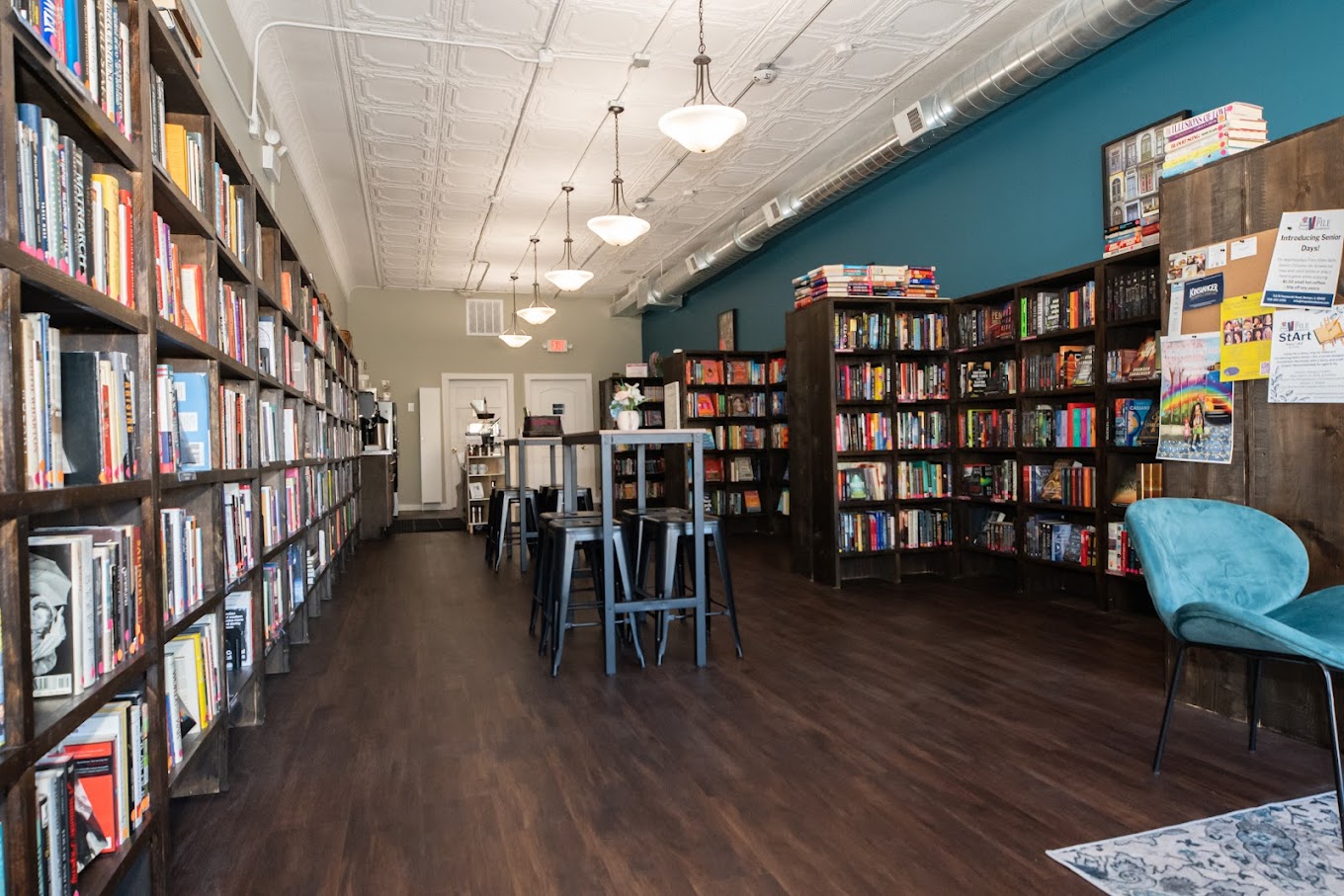
The Pile Bookstore has opened at 7117 Roosevelt Road in Berwyn, Ill., the Forest Park Review reported. Owner Rebecca Lewis said the first few weeks have been busy since opening in February. "People were really excited. They all came out for our opening."
Lewis was previously an office manager at a dental practice and, after helping run another business, wanted to open her own. Noting that Berwyn and South Forest Park did not have a bookstore, she "wanted to fix that, and even more so after attending a book swap in the Ravenswood neighborhood of Chicago, where participants talked about books and recommended them to one another," the Review wrote.
"That's what a bookstore should be, somewhere that you can meet and gather and talk about these things," said Lewis, who has also opened a coffee shop inside the bookstore. In addition to drip coffee and cold brew from Kribi Coffee, the coffee shop also sells pastries from Turano Baking Company and, on Sundays, from Insanely Awesome Bakery, a pop-up based in Berwyn.
The Pile has already hosted a handful of events, including book clubs focusing on banned books and book-to-film adaptations, as well as a book club for high schoolers, where they choose what to read. The shop also has a corner that contains a bookshelf full of games for visitors to play.
"I really want it to be that kind of space where everybody can come together for something specific, but also fun. I want it to be something for everyone," said Lewis. "I'm seeing new faces all the time, being introduced to new people all the time.... It's already starting to be a third space for a lot of people."
Liberation Station, a Black-owned bookstore in downtown Raleigh, N.C., is leaving its bricks-and-mortar location on April 30 due to threats and racial harassment, WRAL News reported.
Owner Victoria Scott-Miller, who founded Liberation Station as an online store and pop-up before opening a bricks-and-mortar space in June of last year, announced on Tuesday that she and her husband have been receiving threats since about September. There has been hate mail as well as threatening phone calls that mentioned her eldest son.
In the months since, Scott-Miller wrote, she and her husband have tried "strategizing within our means to avoid being targeted," which has included changing operating hours, creating content after-hours, and alternating who oversees the store.
She reported that after discussing her safety concerns, and a potential move, with the store's landlord, she learned that her landlord had shared that information with others. Instead of receiving offers of assistance, "we were informed that our unit would be showcased to potential new tenants leading up to our potential departure."
"Despite the challenges," Scott-Miller wrote, "our bookstore has brought immense joy, and we've been determined not to become another headline of controversy. We've worked tirelessly to create a safe space not just for our community but for our own family as well."
And while the store's time at 208 Fayetteville St. will end this month, "it certainly won't mark the end of the Liberation Station Bookstore. There is so much more work to be done."
 |
|
| John Barth | |
John Barth, "a practitioner and a theoretician of postmodern literature" who contended in a 1967 Atlantic Monthly essay "The Literature of Exhaustion" that "old conventions of literary narrative can be, and indeed have been, 'used up,' " died yesterday, the New York Times reported. He was 93.
Barth published nearly 20 novels and collections of short stories, three books of critical essays, and a book of nonfiction pieces. His best-known works included The Floating Opera (1956), The Sot-Weed Factor (1960), and Giles Goat-Boy (1966).
The Floating Opera, Barth's first book, was "narrated by a character who considers killing himself out of existential boredom before realizing that this choice would be as meaningless as any other," the Times wrote.
The Sot-Weed Factor was "a huge picaresque written in Elizabethan style and laden with puns," the Times observed. "It tells the story of Ebenezer Cooke, the 'sot-weed factor' (tobacco peddler) of the title, who travels through a sinful late-17th-century world with his twin sister and his tutor, struggling to maintain his virtue." Time magazine called the novel "that rare literary creation: a genuinely serious comedy." And critic Leslie Fiedler, who taught with Barth at the State University of New York at Buffalo, called the novel "closer to the Great American Novel than any other book of the last decade."
Giles Goat-Boy was, the Times noted, about "a young man who, having recognized that he is human and not a goat, seeks to promote moral conduct on the west campus of a university and redeem its student body by reprogramming a computer, WESCAC, that dominates that portion of the campus, even while the machine is in a dangerous standoff with the equally threatening EASCAC, a deus ex machina that controls life on the east campus."
Lost in the Funhouse, an experimental collection of short stories, was a finalist for the National Book Award in 1969. Chimera, another collection, won the award in 1973.
His last book, a collection of short nonfiction pieces, Postscripts, was published in 2022.
Sometimes criticized for literary gimmicks, Barth "defended his use of postmodern devices like jokes, irony and exaggeration to punctuate, comment on, and even ridicule and undermine a narrative," the Times wrote. "Such techniques, he insisted, provided the tools to replenish and build on what he considered to be the moribund realism of the 19th-century novel."
Barth himself said: "My feeling about technique in art is that it has the same value as technique in lovemaking. That is to say, heartfelt ineptitude has its charm and so has heartless skill, but what you really want is passionate virtuosity."
 This past week, Shelf Awareness sent our monthly pre-order e-blast to more than 960,000 of the country's best book readers. The e-blast went to 960,192 customers of 246 participating independent bookstores.
This past week, Shelf Awareness sent our monthly pre-order e-blast to more than 960,000 of the country's best book readers. The e-blast went to 960,192 customers of 246 participating independent bookstores.
The mailing features 11 upcoming titles selected by Shelf Awareness editors and a sponsored title. Customers can buy these books via "pre-order" buttons that lead directly to the purchase page for the title on each sending store's website. A key feature is that bookstore partners can easily change title selections to best reflect the tastes of their customers and can customize the mailing with links, images and promotional copy of their own.
The pre-order e-blasts are sent the last Wednesday of each month; the next will go out on Wednesday, April 24. Stores interested in learning more can visit our program registration page or contact our partner program team via e-mail.
For a sample of the March pre-order e-blast, see this one from Mountain Shire Books & Gifts, Winter Park, Colo.
The titles highlighted in the pre-order e-blast were:
Lies & Weddings by Kevin Kwan (Doubleday)
Can't Spell Treason Without Tea by Rebecca Thorne (Bramble)
Ministry of Time by Kaliane Bradley (Avid Reader)
Long Island by Colm Tóibín (Scribner)
This Strange Eventful History by Claire Messud (Norton)
Last Murder at the End of the World by Stuart Turton (Sourcebooks)
One Perfect Couple by Ruth Ware(Gallery/Scout)
Situation Room by George Stephanopoulos (Grand Central)
Bits & Pieces by Whoopi Goldberg (Blackstone)
One and Only Family by Katherine Applegate (HarperCollins)
Dare by Natasha Preston (Delacorte)
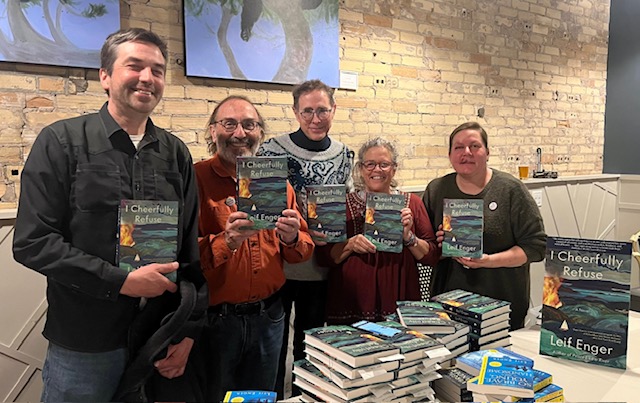 Last night was the launch for Leif Enger's novel I Cheerfully Refuse (Grove), hosted by Zenith Bookstore in Duluth, Minn. The event, at Ursa Minor Brewing, drew a full house. Pictured (from left): musician Jamie Ness, who performed at the event; Zenith co-owner Bob Dobrow; Leif Enger; Zenith co-owner Angel Dobrow; and manager Sara Brown. (photo: Maria Isley)
Last night was the launch for Leif Enger's novel I Cheerfully Refuse (Grove), hosted by Zenith Bookstore in Duluth, Minn. The event, at Ursa Minor Brewing, drew a full house. Pictured (from left): musician Jamie Ness, who performed at the event; Zenith co-owner Bob Dobrow; Leif Enger; Zenith co-owner Angel Dobrow; and manager Sara Brown. (photo: Maria Isley)
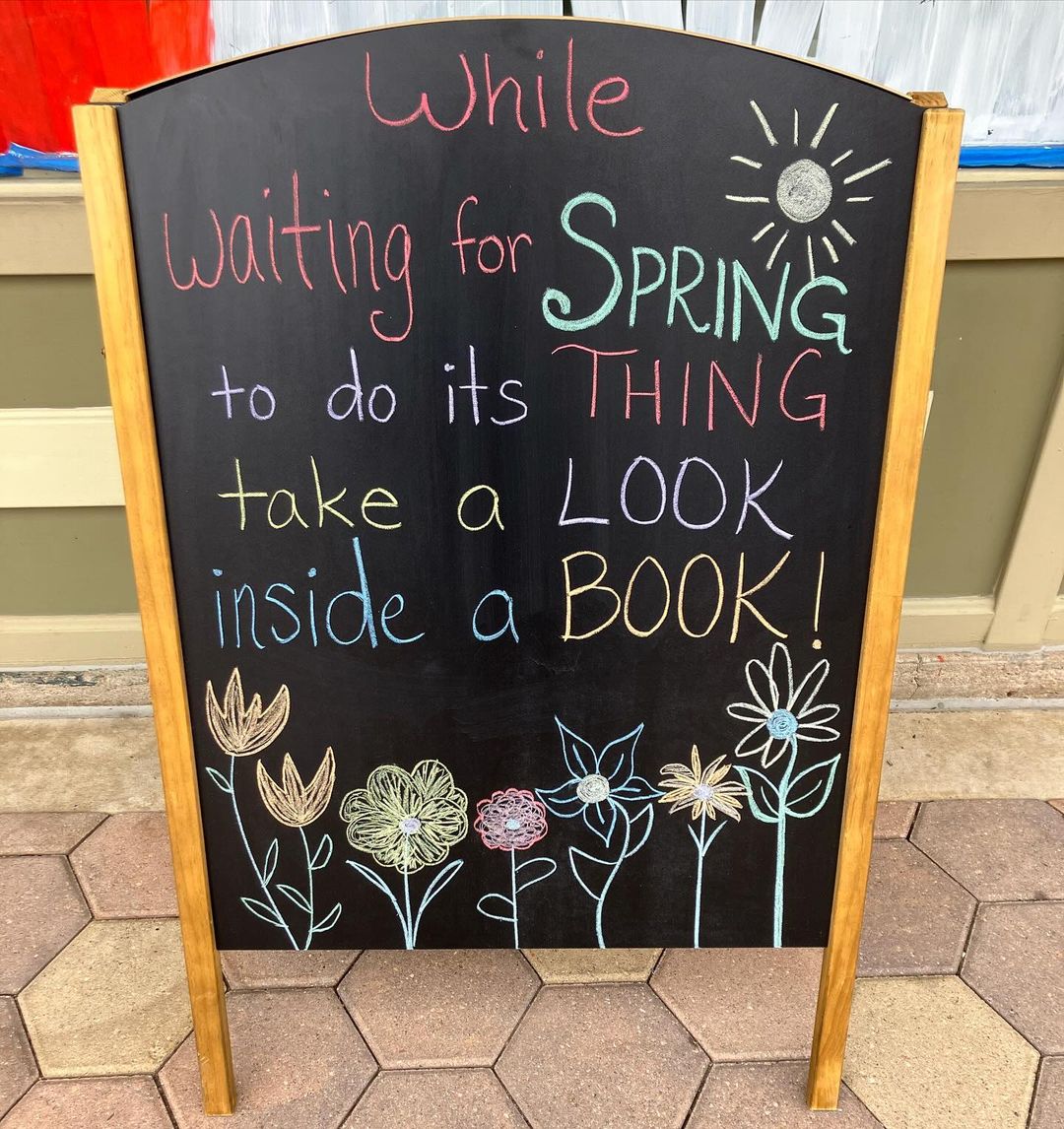 "While waiting for spring to do its thing, take a look inside a book! That was the sidewalk chalkboard message outside Bookstore on the Square, Fort Collins, Colo., which noted on Instagram: "Happy Spring! We’re open regular hours today, Readers."
"While waiting for spring to do its thing, take a look inside a book! That was the sidewalk chalkboard message outside Bookstore on the Square, Fort Collins, Colo., which noted on Instagram: "Happy Spring! We’re open regular hours today, Readers."
Simon & Schuster will handle worldwide sales and distribution for BenBella Books, effective January 1, 2025.
Founded in 2001, BenBella Books, Dallas, Tex., publishes about 80 titles annually in its three imprints: pop-culture imprint Smart Pop; business imprint Matt Holt Books; and general-nonfiction line BenBella Books. The publisher "prides itself on its partnership with authors and their agents."
At Berkley:
Jessica Mangicaro has been promoted to associate director of marketing.
Bridget O'Toole has been promoted to associate director of digital marketing.
---
At St. Martin's Publishing Group:
Alexis Neuville is promoted to manager, marketing.
Kirsi Balazs is promoted to manager, marketing & sales operations.
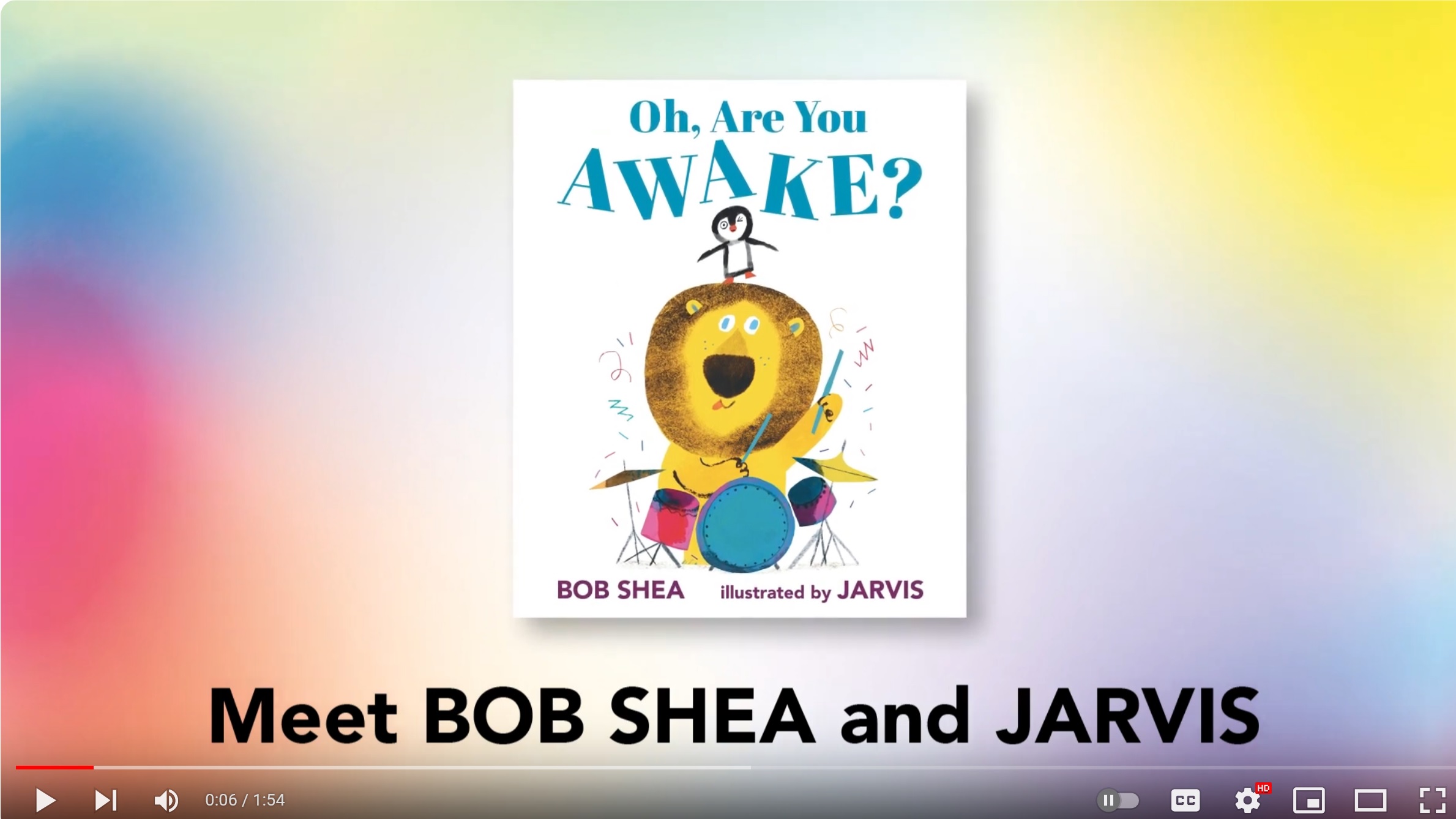 Oh, Are You Awake? by Bob Shea, illustrated by Jarvis (Candlewick Press).
Oh, Are You Awake? by Bob Shea, illustrated by Jarvis (Candlewick Press).
Today:
Fresh Air: Hampton Sides, author of The Wide Wide Sea: Imperial Ambition, First Contact and the Fateful Final Voyage of Captain James Cook (Doubleday, $35, 9780385544764).
Tomorrow:
Tonight Show: Phil McGraw, author of We've Got Issues: How You Can Stand Strong for America's Soul and Sanity (Threshold Editions, $34.99, 9781668061701).
Late Show with Stephen Colbert: Henry Louis Gates Jr., author of The Black Box: Writing the Race (Penguin Press, $30, 9780593299784).
Big Beach, the production company behind Starz's Vida and Facebook's Sorry For Your Loss, has acquired the TV rights to Alexandra Tanner's recently published debut novel Worry, Deadline reported. Lesley Arfin, co-creator of the Netflix comedy series Love, will write the pilot episode alongside Tanner. The series will be executive produced for Big Beach by Tim Foley and Michael B. Clark as well as Tanner.
Tanner said, "I can't wait to share Jules and Poppy's diabolically competitive, intensely intertwined dynamic with a whole new audience--imagining Worry's purgatorial dread and spiralistic, sororal mania as an episodic series with Lesley and the Big Beach team has been the true zenith of my time on earth so far."
Foley added, "We fell in love with Alexandra's singular voice from the first sentence, and couldn't stop laughing as these modern girls flounder their way toward adulthood and family in New York City. The book somehow manages to be both completely original and familiar simultaneously. The show will be about a dysfunctional family, and Big Important Themes: competition, identity, search for meaning. It will also be about getting stoned with your sister and staring at the internet for so long you think you're your own ancestor."
Claire Jiménez won the 2024 PEN/Faulkner Award for Fiction for What Happened to Ruthy Ramirez (Grand Central). She will receive $15,000, with the other shortlisted writers each getting $5,000. All five will be honored May 2 at the annual PEN/Faulkner Award Celebration in Washington, D.C., featuring an appearance by 2023 PEN/Faulkner Literary Champion David Baldacci.
"Our judges have accomplished the seemingly impossible task of finding a 'first among equals' among five diverse and powerfully impressive titles," said Louis Bayard, PEN/Faulkner Awards committee chair. "We look forward to celebrating Jiménez's extraordinary novel at our awards ceremony in May alongside the accomplished work of her fellow finalists."
The judges noted that Jiménez "has crafted a visceral work of art full of nuance, humor, and humanity, through incisive and loving character work, the finely calibrated unspooling of narrative, and the exquisite deployment of language, ranging from poetic prose to Spanglish to the sociolect of working-class Staten Island. A marvelously rendered novel about women, dangers to women, and our strength, What Happened to Ruthy Ramirez is a complex portrait of resilience, full of life: anger, laughter, sorrow, and love."
"I began writing this story a decade ago, a strange tale about the disappearance of a Puerto Rican girl from Staten Island and the women in her family who cannot stop looking for her," said Jiménez. "This novel is not only about a missing girl but also missing stories. I am so grateful to the PEN/Faulkner Foundation and the judges for honoring the voices of the Ramirez women, and I cannot wait to celebrate the extraordinary books of my fellow finalists at the award ceremony in May."
---
Winners have been named for the 2024 Windham-Campbell Prizes, which award eight writers with $175,000 each "to support their work and allow them to focus on their creative practice independent of financial concerns."
Michael Kelleher, director of the Windham-Campbell Prizes, said: "Each year, I feel incredibly honored to call the eight recipients: to be the messenger delivering the entirely unexpected and life-changing news that they have been awarded $175,000. It is clear--now, more than ever--how challenging working in the creative industries, around the world, can be. A Windham Campbell Prize is intended to offer financial security, and through this freedom, the time and space to write, to think, to create--all without pressure or expectation."
The eight winners are:
Fiction
Deirdre Madden (Ireland)
Kathryn Scanlan (U.S.)
Nonfiction
Christina Sharpe (Canada/U.S.)
Hanif Abdurraqib (U.S.)
Drama
Christopher Chen (U.S.)
Sonya Kelly (Ireland)
Poetry
m. nourbeSe philip (Canada/Trinidad and Tobago)
Jen Hadfield (U.K./Canada)
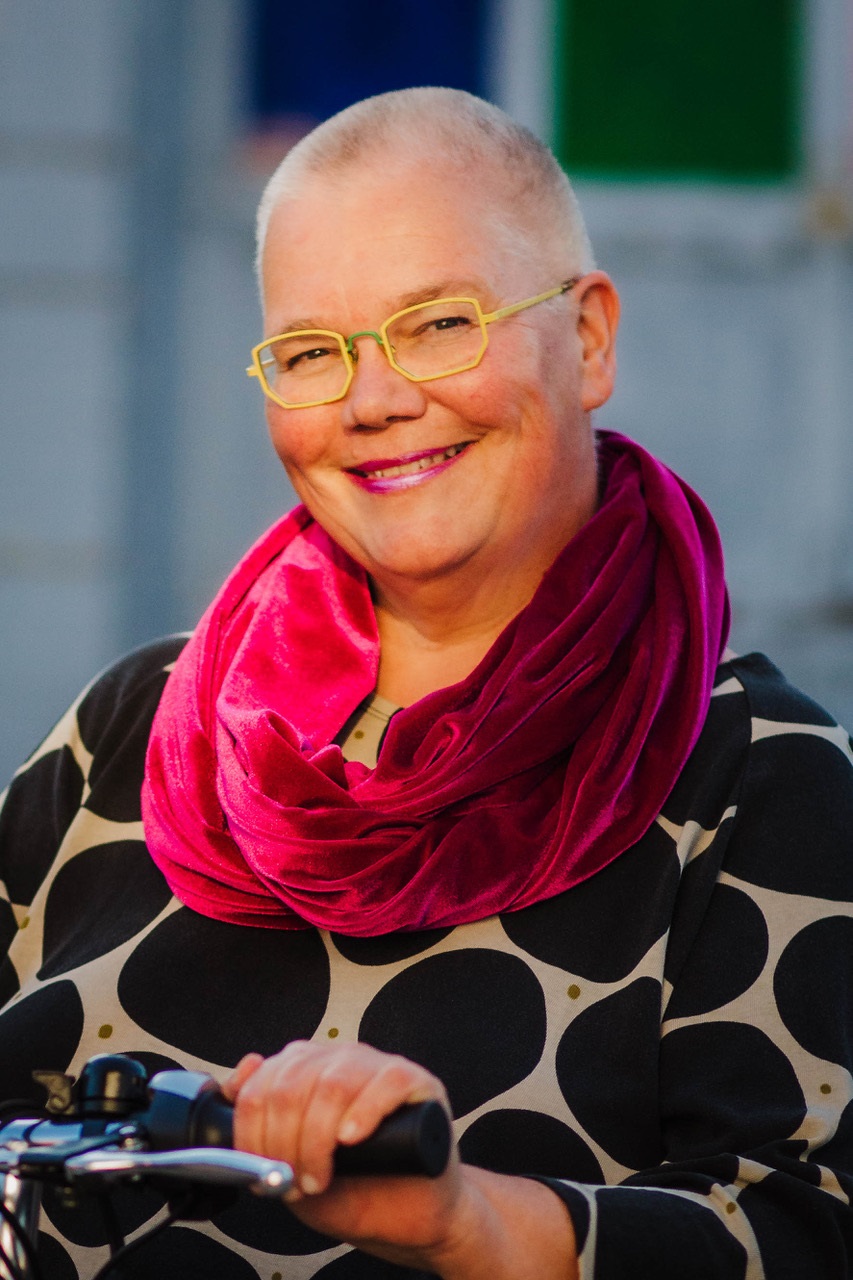 |
|
| photo: Tamara Wade | |
Petra Kuppers is a disability culture activist and a community performance artist who uses somatics, performance, and speculative writing to engage audiences toward more socially just and enjoyable futures. She is the Anita Gonzalez Collegiate Professor of Performance Studies and Disability Culture at the University of Michigan, a 2023 Guggenheim Fellow, and codirector of the somatic writing studio Turtle Disco. Diver Beneath the Street (Wayne State University Press, February 13, 2024) is a collection of dynamic and somatic poems that traverse the realms of urban space, wild rivers, and the hinterlands of suburbia, glimpsing the decay of bodies, houses, carpets, hair, and bones by way of ecopoetry.
Handsell readers your book in 25 words or less:
What happens when your neighborhood is the focus of true-crime drama? How do lands, murder, disability, and poetry work together? Dive with me.
On your nightstand now:
C Pam Zhang's Land of Milk and Honey, a dystopian climate fiction novel that depicts its protagonist as a chef on a Decameron-like mountaintop setting as the world starves. This is so luscious, so decadent--and you will find out what thawed mammoth flesh tastes like.
Sara Tantlinger's The Devil's Dreamland offers poetry as crime documentary, about Chicago serial killer H.H. Holmes. I believe poetry is an excellent medium to talk about the gaps and incomprehensibilities of true crime. And Marjorie Liu's and Sana Takeda's The Night Eaters, a gorgeous horror graphic novel of twisty mothers and haunted houses.
Favorite book when you were a child:
Mary Shelley's Frankenstein. I never forget the moment of awakening, when "the dull yellow eye of the creature opened." I began at that moment to understand how an author can manipulate intensities through the senses.
Your top five authors:
Adrienne Rich, for feminist diving into wrecks. Rainer Maria Rilke, for poetry about longing and touches-beyond-this-world. Victor LaValle and China Miéville, for what they do in their different ways to horror/fantasy genre writing. Gerald Vizenor, for Indigenous horror and disabled cannibal moth creatures.
Book you've faked reading:
The Bible.
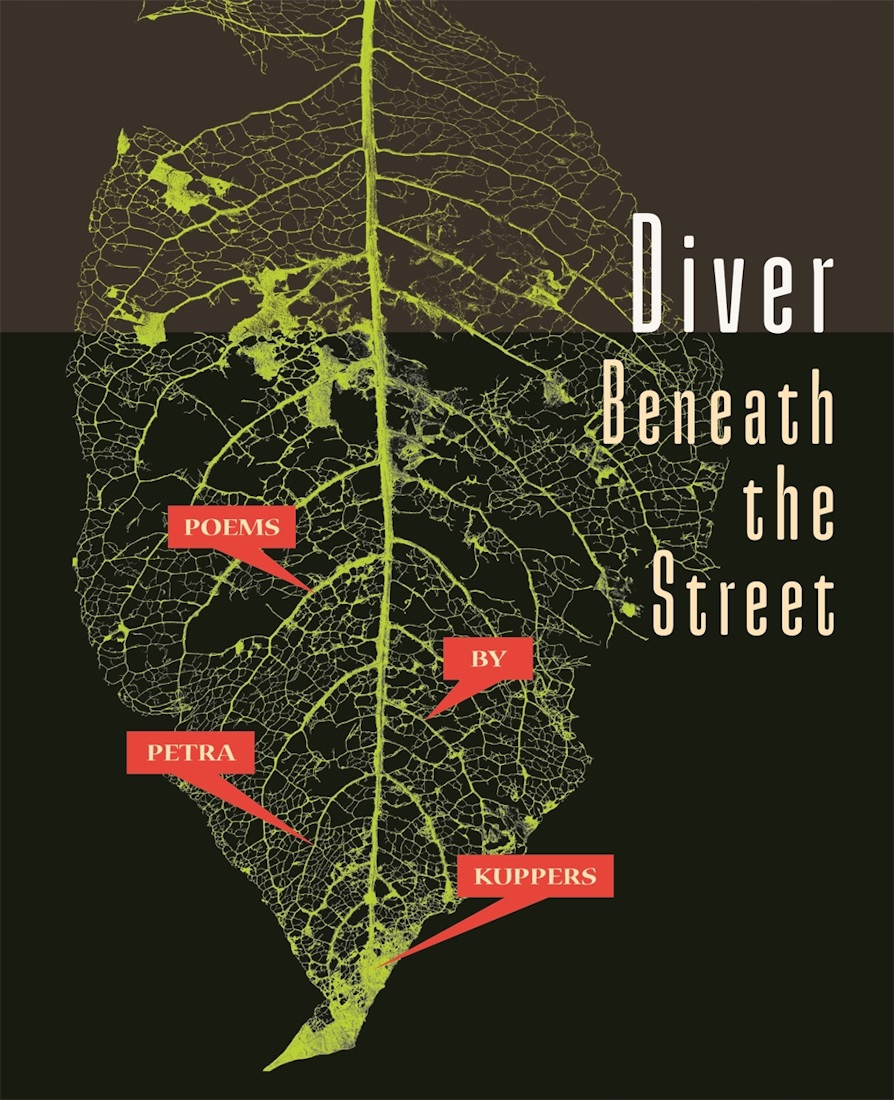 Book you're an evangelist for:
Book you're an evangelist for:
Alexis Pauline Gumbs's M Archive: many people know her gorgeous creative nonfiction book Undrowned better, but the prose poetry collection M Archive is a rich exploration of the elements, and of Black artistry lovingly and bodily engaged with dirt, sky, ocean, and fire in a post-apocalyptic world of new and old relations. It's a book full of insights and offerings for living more consciously, for creating healing spaces in a changing world. I witnessed Gumbs give a reading from the book as a divination practice, asking members of the audience to hold a question and then offer a page number for her to read out--and then Gumbs and the audience parsed together what appeared on that page, going deep. What a way to touch with literature.
Book you've bought for the cover:
Cynthia Pelayo's Crime Scene. I actually bought this poetry collection because it is a deep exploration of the detective position in police procedurals, of the price humans pay in the hunt for a murderer--but it also has the most gorgeous cover: a skeleton in a dress in a field of black, with golden leaves shooting outwards--grave earth and living trees.
Book you hid from your parents:
Stephen King's 'Salem's Lot. I read it multiple times, scared myself silly with vampires and basement graves, and just loved it. I re-read it again quite recently, and the small-town horror holds up well.
Book that changed your life:
Edgar Allan Poe's short stories, crossed in my mind with Arthur Conan Doyle's Sherlock Holmes stories. Somewhere in between these detectives and their environments, between repression and unexpected eruptions of tenderness and horror, my literary desires were born.
Favorite line from a book:
So many! Here is one: "Light is the left hand of darkness and darkness the right hand of light. Two are one, life and death, lying together like lovers in kemmer." Ursula K. Le Guin, The Left Hand of Darkness. Aren't you dying to know what kemmer is?
And here is another, a brief glimpse of the Wide Open, a recurrent space in my poetry books, too--from Albert Camus's The Plague: "You think about bathing in the sea--thick as velvet, supple and smooth as a wild animal."
Five books you'll never part with:
Susan Nussbaum's Good Kings Bad Kings, a novel about disability culture and its joys and tears. Disabled youth in a nursing home explore what it means to have rich lives, even as the insurance companies kill them slowly.
Tender Buttons by Gertrude Stein. This influential poetry collection taught many burgeoning feminists how to pay attention to the materials that surround us, how to use description as a veil, as a glass, as something that both obscures and reveals. I bought a new copy for my (now) wife, poet Stephanie Heit, when we were dating, and annotated it for her. Writing in/with poems, de/constructing books: I love these interactions.
Gabrielle Civil's The Déjà Vu, a performance art writing project, a creative nonfiction book that takes us through the art/life of a Black feminist maker. The book begins in Ypsilanti, at the Déjà Vu, which is not (not) a nightclub in Ypsilanti--and that's my hometown, and the site of my own poetry collection.
Octavia's Brood: Science Fiction Stories for Social Justice, edited by Adrienne Maree Brown and Walidah Imarisha, is a collection of stories by activists from different social justice movements, offering models for how to use creative writing as an activist tool. It's a really useful book for teaching, and I have used it in university classes like Queer/Trans Eco-Arts and Disability Culture Speculations.
Maggie Nelson's Jane: A Murder, a poetry collection about the murder of her aunt, which taught me so much about writing at the site of true crime, how to engage character, relationships, and memory in the aftermath of violent death.
Book you most want to read again for the first time:
Truman Capote's In Cold Blood, one of the initial entries in the true-crime genre.
Flawless Girls by Anna-Marie McLemore (Feiwel & Friends, $20.99 hardcover, 288p., ages 13-up, 9781250869630, May 28, 2024)
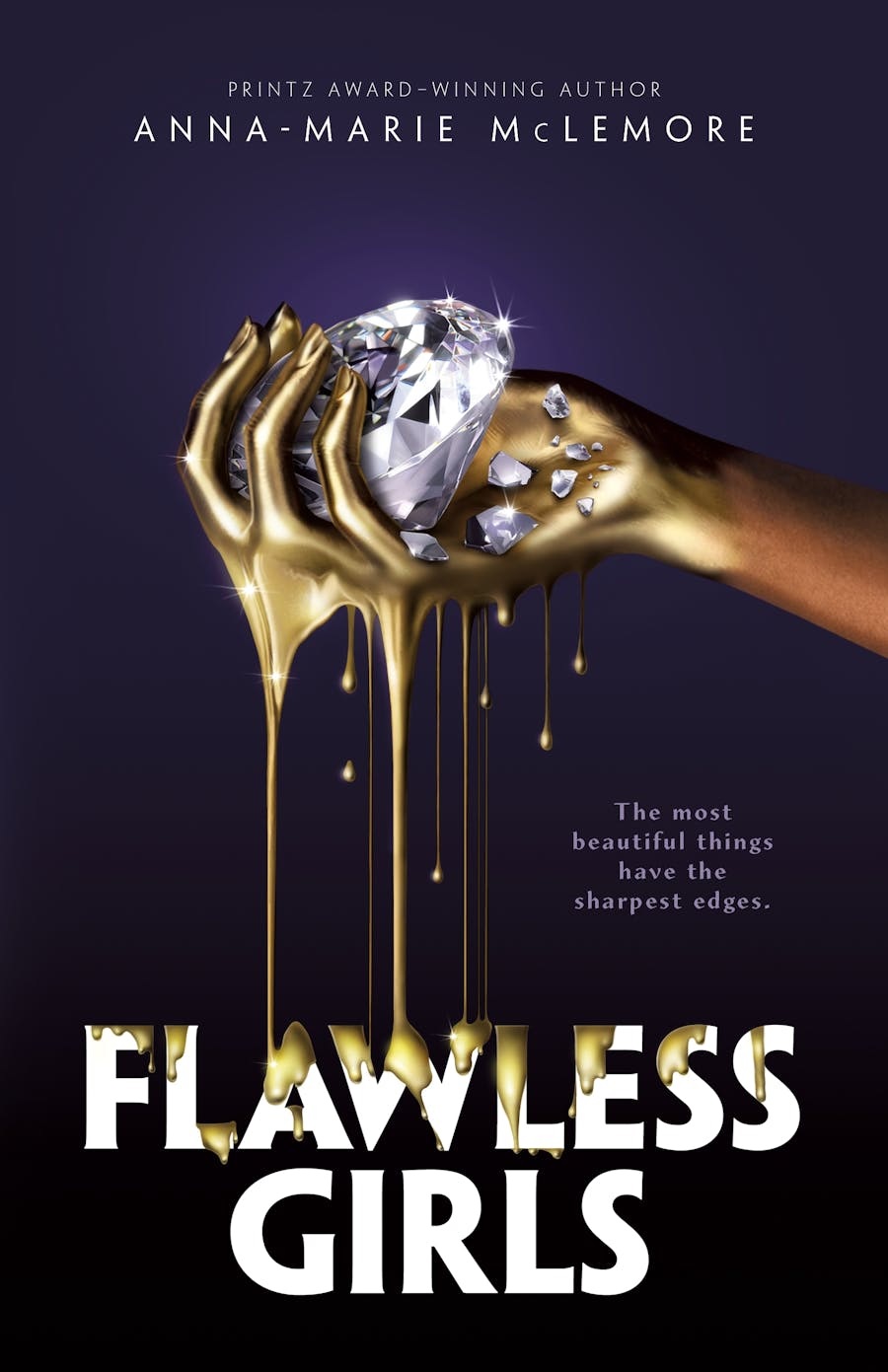 A girl thrust into an eerily impeccable finishing school must unravel the madness beneath its glimmering façade in Flawless Girls, an exquisitely crafted YA tale about the prescribed bounds of femininity by Anna-Marie McLemore (Lakelore; Mirror Season).
A girl thrust into an eerily impeccable finishing school must unravel the madness beneath its glimmering façade in Flawless Girls, an exquisitely crafted YA tale about the prescribed bounds of femininity by Anna-Marie McLemore (Lakelore; Mirror Season).
The Alarie House, a renowned finishing school, trains its girls always to exhibit unyielding grace. Seventeen-year-old Latina Isla Soler, unnerved by the students, left after one day. But her older sister, Renata--who once used mice to scare off visitors--finished her schooling and returned home "polished to a shine." This "doll version" of Renata frightens Isla with how completely she has "forgotten her own sharp, glittering heart," and with how something like rage, like violence, flickers behind her eyes. Isla, desperate to undo Renata's metamorphosis, re-enrolls at the Alarie House.
Isla learns little through the onslaught of daily comportment lessons, such as how to shield one's eyes from the sun or break the "awful habit" of biting into bread. Then the strangeness of night welcomes her. After dark, within the school's jewel-encrusted walls, inside its shimmering chandelier, atop the roof of a place gilded in the legend of its utter refinement is something wild. Girls dance carelessly, their postures broken from their daytime wine-stem rigidity. Girls scream, their teeth glinting like diamonds. Among them, always lucid and never ensnared by the reckless whimsy of the night, is Paz, "cynical and skeptical and far too amused about everything." Paz, who wears men's clothes and reminds Isla of a pirate king in a book illustration, notes that "whenever you polish something, you lose part of it," suggesting that the "edges" Isla possesses and loved about her sister are valuable. In Paz, Isla sees the same unhinged ferocity she'd glimpsed in Renata--one Isla senses rising within herself, ready to consume.
Isla wasn't "born with all the pieces her body was supposed to have" (McLemore suggests in their author's note that Isla might "embrace the terms intersex or differences of sex development") and she shirks the need to look like an "ideal young lady" while still identifying as female. Flawless Girls splits storied notions of proper femininity--and gender itself--apart at the seams in an exemplary portrait of learning to express oneself. The horror in the book lies in the house's absurd beauty, in the girls' untamed nights never discussed by day, in unreal fragments of experience that deflect Isla's questions. McLemore's signature prose both cuts like ice and rolls languidly off the tongue. Luxuriously chilling. --Samantha Zaboski, freelance editor and reviewer
Shelf Talker: A girl thrust into an eerily impeccable finishing school must sort the madness beneath its flawless façade in this exquisitely crafted YA tale about the prescribed boundaries of femininity.
The bestselling Libro.fm audiobooks at independent bookstores during March:
Fiction
1. The Women by Kristin Hannah (Macmillan Audio)
2. The Complete Poppy War Trilogy by R.F. Kuang (HarperAudio)
3. Dune by Frank Herbert (Macmillan Audio)
4. Listen for the Lie by Amy Tintera (Macmillan Audio)
5. The Heaven & Earth Grocery Store by James McBride (Penguin Random House Audio)
6. The Hunter by Tana French (Penguin Random House Audio)
7. James by Percival Everett (Penguin Random House Audio)
8. Tom Lake by Ann Patchett (HarperAudio)
9. First Lie Wins by Ashley Elston (Penguin Random House Audio)
10. North Woods by Daniel Mason (Penguin Random House Audio)
Nonfiction
1. Burn Book by Kara Swisher (Simon & Schuster Audio)
2. The House of Hidden Meanings by RuPaul (HarperAudio)
3. I'm Glad My Mom Died by Jennette McCurdy (Simon & Schuster Audio)
4. Slow Productivity by Cal Newport (Penguin Random House Audio)
5. Braiding Sweetgrass by Robin Wall Kimmerer (Tantor Media)
6. Supercommunicators by Charles Duhigg (Penguin Random House Audio)
7. The Anthropocene Reviewed by John Green (Penguin Random House Audio)
8. The Wager by David Grann (Penguin Random House Audio)
9. Freedom Is a Constant Struggle by Angela Y. Davis (Tantor Media)
10. The Hidden Life of Trees by Peter Wohlleben (HarperAudio)